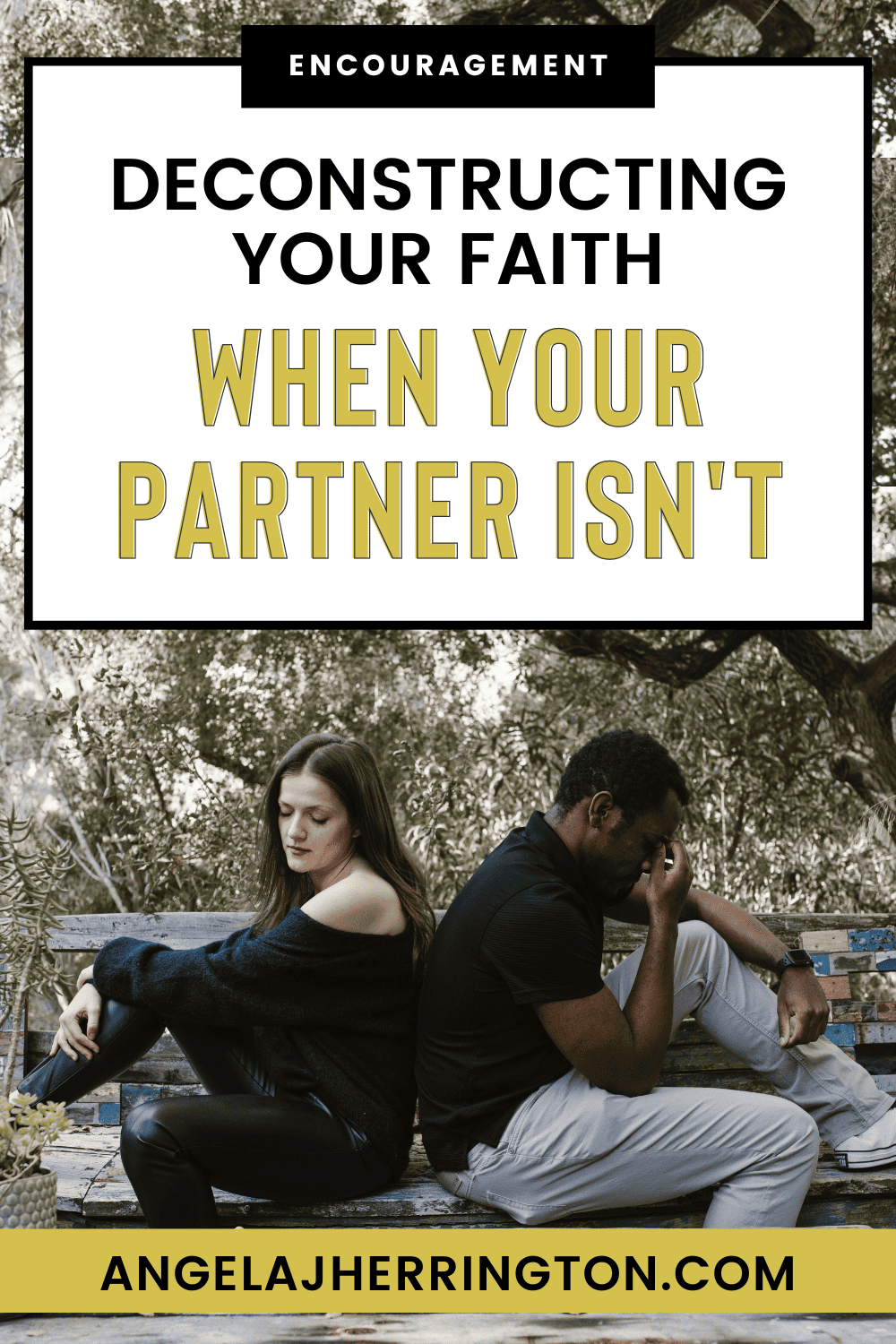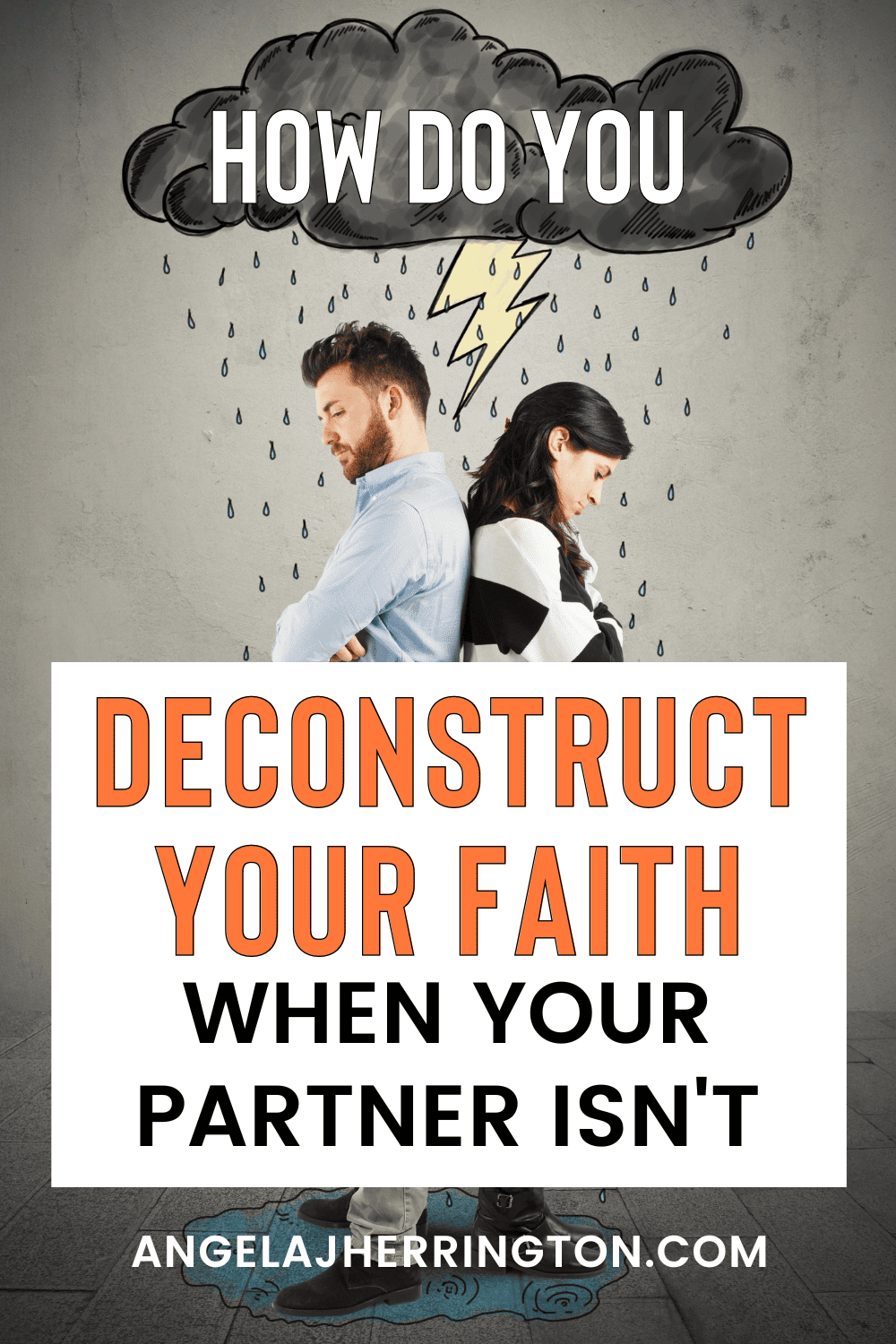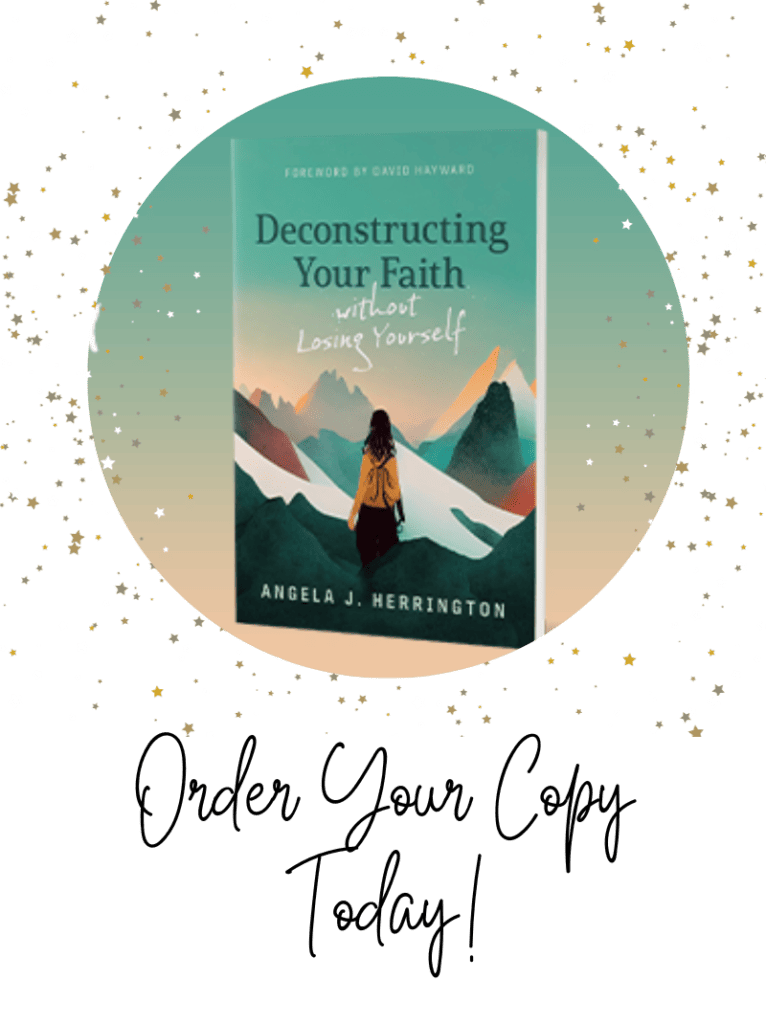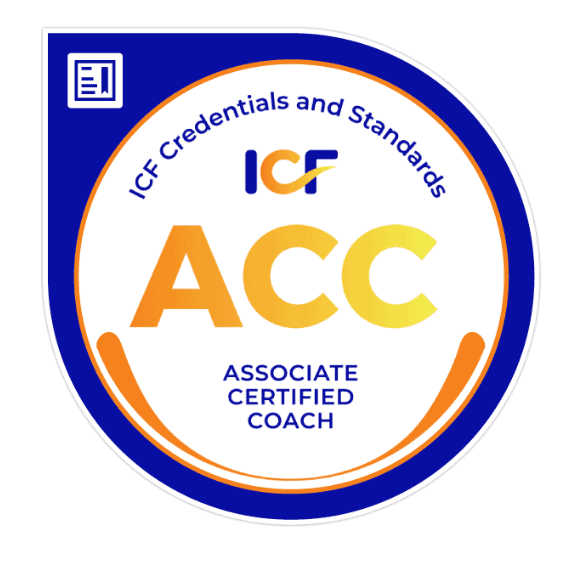Deconstructing your faith is a complex process that can be difficult to navigate, especially when you’re in a committed relationship with someone who doesn’t share your doubts and questions. It’s not easy to reconcile differing beliefs, but it’s essential to approach the process with grace and understanding. Perhaps you’ve heard horror stories either from those still inside the faith or who have deconstructed on what has happened to their marriage, or someone shares the details of the breakdown of a Christian friend’s relationship with an atheist, or their neighbor’s niece’s engagement being broken up because of differing beliefs, but that doesn’t have to be your story. Here are five tips to deconstruct while in a relationship.
Communicate openly and honestly with your partner.
Try not to assume they will automatically understand what you’re going through with faith deconstruction or even what it means. They may not have experienced the same doubts or questions and may have some legitimate fears about what will happen next with what you want or believe. The status quo changes when you go through this process, and that can feel nerve-wracking for the person who didn’t start this journey but is being brought into it. Share feelings and experiences respectfully and compassionately, and be willing to listen to their perspective as well. As scary as it is to wonder if they will love you the whole you, it’s also important to trust your intuition when it feels time to share what you are going through.
They may surprise you with their openness, or it may create space to have some deeper conversations.
Either way, you can’t hide this part of you forever, so be gentle with yourself as you start to share with them.
Have patience for the process
It’s also important to recognize that faith deconstruction is a journey, and it may take time for your spouse to understand and support how you are processing fully. Don’t expect them to be on board immediately, as this can put undue pressure on them and cause unnecessary tension in the relationship. Just because your spouse isn’t on the same page as you doesn’t mean they won’t ever be. Allow them to come to their conclusions at their own pace.
What this means for you is you need to cultivate a way to explore, process, and wonder outside of your relationship. Processing on your own, while your spouse is learning what your next steps look like isn’t shutting your spouse out. It’s relieving the pressure on their shoulders to hold all of your questions, especially if they are unsure of what you changing your faith or leaving toxic religion looks like going forward.
Telling them you struggle with whether the Goddess is the Holy Spirit or a person of her own right, and that you are doubting if Jesus died for your sins, or for everyone, or murdered by the state, and then looking to them for encouragement to keep exploring if they are still attending and deeply embedded in your old faith tradition is most likely not going to go well. Have patience, and give yourself time to also think through what you want to share with them before you explain what you are currently wrestling with along belief lines.
Focus on building a foundation of mutual respect and trust, even when you disagree about faith deconstruction.
Recognize that your spouse’s beliefs are just as valid as yours, even if they don’t align with your current understanding. Think of values and beliefs are something like a salad recipe versus a bread mix. They don’t all have to blend together to be delightful and amazing in it’s own way. New perspectives can breathe life into your foundation and worldview, but you have to build together. Have conversations about what values you do share, and build from there. You can do this as a family all together and create a family values vision board, or go on a date and talk about what you hold most dearly now.
Lean into what you love about each other and what makes your life together rich and enjoyable. Is it that you travel together often? That you have Friday game nights at the house where the kids can invite their friends to a safe home to be and have fun? Is it that you spend time cultivating hobbies you both love together and separately? You might be surprised at what is still present and alive between you when you focus on the similarities versus the growing change of your deconstruction.
Embrace your differences as an opportunity to learn from one another and grow together.
Remember, you aren’t the first couple to be ‘unequally yoked.’
In addition to open communication and mutual respect, seeking support from others who have gone through a similar process can be helpful. Join a support group, attend a conference or workshop, or connect with others who share your experiences online. A community of people who understand what you’re going through can provide much-needed encouragement and support. Perspective can be really helpful. If you find yourself in a homogenous place, go online to hear stories of unlikely couples who came from different backgrounds and made it work.
Remembering that so many other people made a relationship work amid fundamental differences can give you hope too.
Take breaks, and set boundaries as needed as you navigate faith deconstruction.
It’s important to set boundaries and expectations. Deconstructing can be a rollercoaster of emotions, and taking breaks or limiting specific discussions is okay. Ensure you’re both on the same page about what is and isn’t okay to discuss and when to take a break. It might be a weird change of pace to have more structured discussions if you are usually a couple who is on the same page. Know that people change over time and that although you may not grow the same, choosing to grow and understand and love the person you are with as they grow and change is part of the commitment that being in love is. It would be kind of strange if you were exactly the same at 40 as you were at 20.
I would also recommend reading books by Dr. Brené Brown to give you extra language to use when being vulnerable. Being vulnerable with your significant other doesn’t mean word-vomiting everything you now believe. Choosing to be vulnerable is brave, and being wise in how you share, acknowledging this is a two-person ongoing conversation you will have, not just a rip-the-bandaid-off moment.
Ultimately, deconstructing when your spouse isn’t on board requires patience, communication, and mutual respect. It’s not easy, but navigating the process with grace and understanding is possible. Remember that the relationship you have is more than just your beliefs or doubts.
Set healthy boundaries around faith deconstruction and focus on what you love and appreciate about your spouse, and make time for fun and laughter.
Don’t let deconstructing your faith consume your relationship, and remember that you’re in this together.
Hungry for more? Here are a few popular faith deconstruction-related posts you’ll find helpful:
What Does it Mean to Deconstruct Your Faith?
Sometimes You Have to Leave the Church to Find God
Is Deconstructing Your Faith Biblical?
8 Reasons Why Christians Should be 2SLGBTQIA+ Allies
Deconstructing While Parenting
How to Get Out of Toxic Religion
The Best Faith Deconstruction Conferences & Online Summits




Angela is a Faith Deconstruction Coach and host of The Deconstructing Faith Summit who helps people break free from toxic religious culture & empowers them to recover from #churchhurt. She has led online ministries for a decade, enjoys working with clients 1:1, in groups, and is a dynamic conference speaker. She’s a Lark’s Song Certified Life Coach who reaches thousands of people in 40+ countries each month on Facebook, IG, Twitter, Pinterest, and her blog.
She’s a firstborn, Enneagram 8, Gen Xer who loves to question everything. She holds a BA from Indiana Wesleyan and a Masters in Leadership from Wesley Seminary. Her graduate research project focused on leadership development and opportunities for Gen X women in the US church.
Angela and her unique online ministry are featured in Lyz Lenz’s 2019 book God Land: Story of Faith, Loss, and Renewal in Middle America. She has published articles in Hope for Women and HOPE is Now magazines. She has been featured in The New Republic, Publisher’s Today, and Religion News Service.
Her first book, Deconstructing Your Faith Without Losing Yourself, Will be published by Eerdmans in February 2023.
Angela is also a wife, mom to 5, and a proud resident of Marion, Indiana with her family when they’re not traveling the US in their RV.





